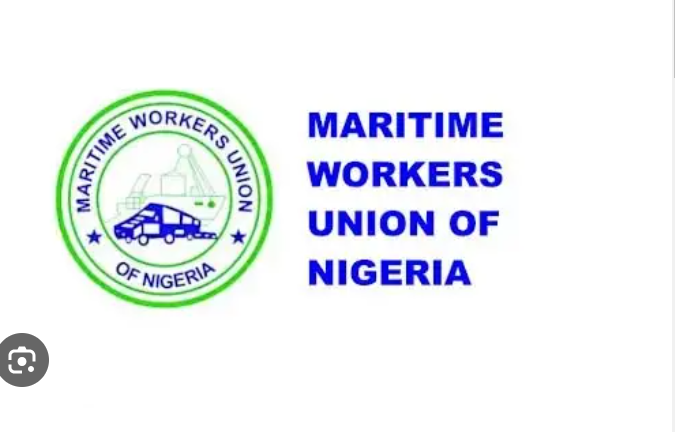Maritime workers have raised concerns regarding the state of Nigeria’s waterways and are advocating for regular channelling to improve navigation and ensure safety within the country’s maritime sector. This call comes in light of ongoing challenges that hinder the efficient movement of goods and services, impacting trade and economic activities reliant on water transportation.
### Importance of Regular Waterway Channelling
Regular channelling of waterways refers to the process of maintaining and deepening navigable channels to ensure they are safe and accessible for maritime activities. This is particularly crucial in a country like Nigeria, where rivers and coastal routes play a vital role in the transportation of goods, especially for regions with limited road infrastructure.

The maritime workers’ advocacy emphasizes that proper channelling can lead to several benefits:
1. **Improved Safety**: Navigating through poorly maintained or shallow waterways poses significant risks to vessels and their crews. Regular channelling can reduce accidents and groundings, ensuring safer passage for maritime operations.
2. **Enhanced Trade Efficiency**: With improved navigational channels, vessels can move more freely, reducing delays in loading and unloading cargo. This efficiency is crucial for importers and exporters who depend on timely deliveries to meet market demands.
3. **Economic Growth**: A well-maintained waterway system can stimulate economic growth by attracting more businesses to engage in maritime trade. Increased shipping activities can lead to job creation and contribute to local economies.
4. **Environmental Sustainability**: Regular channelling can help mitigate environmental challenges, such as erosion and sedimentation, which can disrupt marine ecosystems. Proper management of waterways promotes the health of aquatic environments.
### Challenges Faced by Maritime Workers
Maritime workers have voiced concerns over several issues that complicate their operations:
– **Dredging and Maintenance**: Inconsistent dredging schedules have resulted in silting and shallow channels, making navigation hazardous. The absence of regular maintenance has led to increased costs and risks for shipping companies.
– **Regulatory Delays**: Bureaucratic processes and regulatory delays hinder the timely execution of dredging and maintenance contracts. This has resulted in prolonged periods of unsafe navigation, impacting the overall efficiency of the maritime sector.
– **Funding Constraints**: Limited financial resources for maintenance and infrastructure development hinder the ability to carry out necessary dredging activities. The maritime workers are calling for increased government investment in waterway management.
### Government and Stakeholder Response
In response to the maritime workers’ concerns, there have been discussions among government officials and industry stakeholders regarding the need for a comprehensive waterway management strategy. Key points of focus include:
1. **Increased Investment**: There is a growing consensus on the importance of investing in the dredging and maintenance of waterways. Stakeholders are urging the government to allocate sufficient funds to ensure that channels are kept navigable.
2. **Public-Private Partnerships**: Collaborations between government agencies and private sector players can facilitate the efficient management of waterways. Such partnerships can leverage expertise and resources to address maintenance challenges more effectively.
3. **Policy Development**: Crafting policies that prioritize regular channelling and maintenance of waterways can create a conducive environment for maritime operations. Clear guidelines and regulatory frameworks are necessary to streamline processes and promote accountability.
4. **Community Engagement**: Involving local communities and maritime workers in the planning and execution of waterway management projects can lead to more effective outcomes. Engaging stakeholders ensures that their insights and experiences are taken into account.
### Future Prospects for Nigeria’s Maritime Sector
The call for regular channelling of waterways highlights the need for a collaborative approach to improving Nigeria’s maritime infrastructure. As the country seeks to boost its trade and economic activities, the efficient management of waterways will be critical.
The maritime workers’ advocacy aligns with broader national goals of enhancing transportation networks and improving logistics systems. By addressing the challenges faced in navigating waterways, stakeholders can create a more resilient maritime sector capable of supporting economic growth and development.
### Conclusion
The plea from maritime workers for regular channelling of waterways is a timely reminder of the critical role that efficient water transportation plays in Nigeria’s economy. As discussions continue among stakeholders, it is essential to prioritize investments in waterway management and establish a comprehensive strategy that ensures safe and reliable navigation for all maritime activities.
With concerted efforts from government agencies, private sector partners, and maritime workers, Nigeria can pave the way for a thriving maritime industry that meets the demands of trade and fosters sustainable economic development. By enhancing the navigability of its waterways, Nigeria can unlock the full potential of its maritime resources, positioning itself as a key player in regional and global trade networks.
Support InfoStride News' Credible Journalism: Only credible journalism can guarantee a fair, accountable and transparent society, including democracy and government. It involves a lot of efforts and money. We need your support. Click here to Donate
